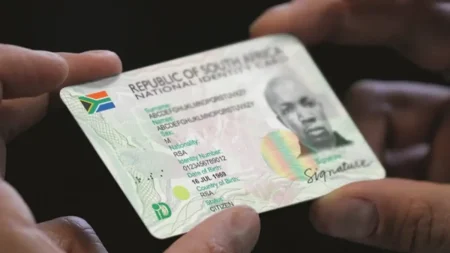Healthcare is a basic human right, and in South Africa, millions of people rely on public hospitals and clinics for medical services. While many facilities work hard to deliver care, there are times when patients may experience poor service. If you have encountered long waiting times, rude or unprofessional staff, or substandard treatment, it’s crucial to know how and where to report poor service at public hospitals and clinics.
This guide will walk you through the steps to ensure your complaints are taken seriously and the relevant authorities address the issues.
Why It is Important to Report Poor Service at Public Hospitals and Clinics
Before diving into the reporting process, it is essential to understand why reporting poor service at public hospitals and clinics is critical:
- System Improvement: Reporting issues helps pinpoint the areas in healthcare facilities that need attention. It allows authorities to improve the quality of care at public hospitals and clinics.
- Accountability: When healthcare professionals and administrators are held accountable for their actions, it can lead to better service for all patients.
- Upholding Patient Rights: Every South African has the right to decent healthcare. By reporting poor service at public hospitals and clinics, you help ensure that these rights are respected and upheld.
- Health and Safety: Poor service can pose serious risks to patients’ health. Reporting issues like medication errors, delays in treatment, or substandard care ensures patient safety is prioritized.
Where to Report Poor Service at Public Hospitals and Clinics
If you have had an unsatisfactory experience at a public healthcare facility, there are several avenues available for lodging a formal complaint.
Below are the various places where you can report poor service at public hospitals and clinics in South Africa:
1. Hospital or Clinic Management
The first step when you encounter poor service at a healthcare facility is to report the issue to the hospital or clinic management. Many public hospitals and clinics have a Patient Complaints Officer or a Public Relations Officer (PRO) who is tasked with handling complaints from patients.
- How to Report:
- Visit the hospital or clinic in person and request to speak with the complaints officer or PRO.
- Provide them with a clear and detailed account of your experience.
- Ask for feedback on how they will address your complaint and the steps they’ll take to resolve the issue.
- What You’ll Need:
- Your contact information.
- Date and time of the incident.
- Names of healthcare staff involved, if available.
- A detailed description of what happened.
This is often the quickest way to report poor service at public hospitals and clinics. Management may take immediate steps to address smaller issues, such as rude staff or long waiting times.
2. Provincial Department of Health
If the hospital or clinic management doesn’t respond adequately, or if the issue is more severe, you can report the problem to the Provincial Department of Health. Each province in South Africa has its own health department that supervises public healthcare services.
- How to Report:
- Visit your province’s health department website and locate the complaints or feedback section.
- Submit your complaint online, via email, or over the phone using the provided contact details.
- Provincial Department Contact Information:
- Gauteng Department of Health: www.gauteng.gov.za
- Western Cape Department of Health: www.westerncape.gov.za
- KwaZulu-Natal Department of Health: www.kznhealth.gov.za
- Eastern Cape Department of Health: www.echealth.gov.za
- For other provinces, check their official websites for contact details.
- What You’ll Need:
- Detailed information about your complaint.
- Any documentation, such as medical records or appointment slips, to support your case.
3. Office of Health Standards Compliance (OHSC)
The Office of Health Standards Compliance (OHSC) is an independent body established to monitor healthcare standards in South Africa. The OHSC is a key agency for patients who need to report poor service at public hospitals and clinics when other avenues have failed.
- How to Report:
- Visit the OHSC website: www.ohsc.org.za.
- Navigate to the Complaints section and submit your complaint online, or download a form, fill it out, and send it to the OHSC via email (complaints@ohsc.org.za) or by post.
- What You’ll Need:
- A detailed account of what occurred, including dates and times.
- Names of healthcare workers involved, if known.
- Supporting evidence, such as photos, documents, or medical records.
The OHSC investigates complaints related to healthcare standards and can help address issues such as negligence, unsafe practices, or inadequate care at public hospitals and clinics.
4. Health Professions Council of South Africa (HPCSA)
If your complaint involves the unprofessional conduct of a specific healthcare worker, such as a doctor, nurse, or pharmacist, you can report poor service at public hospitals and clinics to the Health Professions Council of South Africa (HPCSA).
- How to Report:
- Visit the HPCSA website: www.hpcsa.co.za.
- Navigate to the Complaints section and follow the instructions for submitting your complaint.
- What You’ll Need:
- The name and profession of the healthcare worker involved.
- A clear, factual account of what occurred.
- Any supporting evidence or documents that can help strengthen your case.
The HPCSA focuses on professional conduct and ethical issues. If you believe a healthcare worker acted unethically or incompetently, you should report poor service at public hospitals and clinics to the HPCSA.
5. South African Human Rights Commission (SAHRC)
If you believe your human rights were violated, such as being denied healthcare or being treated in a discriminatory manner, you can report poor service at public hospitals and clinics to the South African Human Rights Commission (SAHRC).
- How to Report:
- Visit the SAHRC website: www.sahrc.org.za.
- Follow the instructions in the Complaints section to submit your complaint.
- What You’ll Need:
- A detailed account of your complaint, including any relevant evidence.
- Documentation such as medical records or witness statements, if applicable.
The SAHRC can investigate cases where patients’ rights to healthcare are violated, ensuring that those responsible are held accountable.
6. Public Protector
If your complaint involves a failure by government officials or departments to take appropriate action, you can report poor service at public hospitals and clinics to the Public Protector.
- How to Report:
- Visit the Public Protector website: www.pprotect.org and follow the instructions for submitting a complaint.
- What You’ll Need:
- Details of the incident, including previous attempts to resolve the issue with health departments or hospital management.
- Any correspondence or evidence related to your complaint.
The Public Protector has the authority to investigate and resolve cases involving government misconduct, ensuring accountability in public healthcare.
Steps to Follow When You Report Poor Service at Public Hospitals and Clinics
It is important to follow these steps to ensure your complaint is effectively handled:
- Document Everything: Keep detailed records of all incidents, including dates, times, and the names of staff members involved.
- Provide Specific Information: When you report poor service at public hospitals and clinics, be clear and factual about what happened. Stick to the facts and avoid emotional language.
- Follow Up: After submitting your complaint, follow up with the relevant authority to ensure that your case is being addressed.
- Escalate If Necessary: If the facility’s management or provincial health department fails to take action, escalate your complaint to bodies like the OHSC or HPCSA.
Read More: Mental Health Helplines: Contact Details for 24/7 Mental Health Support
If you experience poor service at a public healthcare facility, you don’t have to remain silent. By reporting poor service at public hospitals and clinics, you help improve the system, hold healthcare professionals accountable, and protect patient rights. Whether you raise your concerns with hospital management, the Provincial Department of Health, or national bodies like the OHSC, you have the power to make a difference in the quality of healthcare in South Africa.










